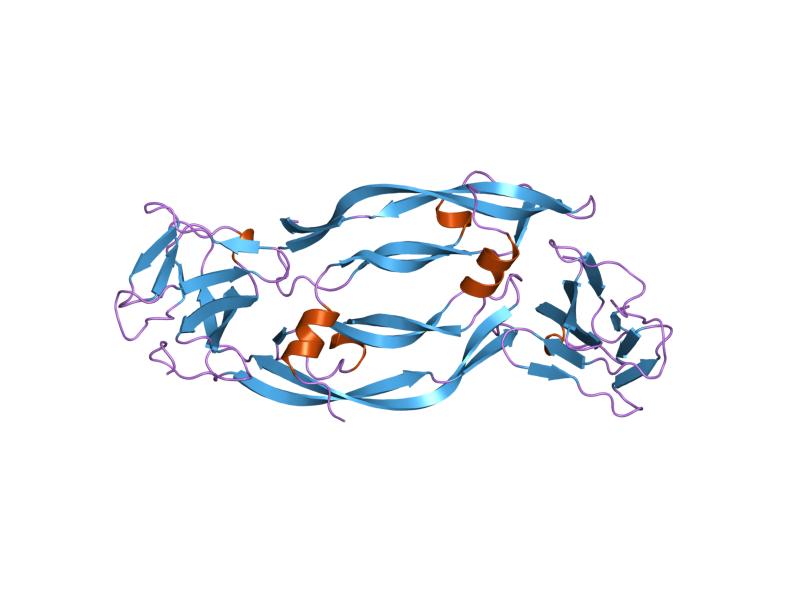
Accurate and early diagnoses is invaluable in the fight against cancer. Early detection guarantees the best chances of survival, since physicians can begin treatment before the cancer has had time to spread to other parts of the body. Researchers at the Fraunhofer Institute for Cell Therapy and Immunology IZI in Leipzig, Germany are currently developing a new technique for detecting lung cancer. The patient breathes into a machine for about 20 minutes, and the breath forms a liquid within the machinery that is evaporated and then screened for specific biomarkers. Biomarkers are naturally occuring indicators of different conditions, including cancer. An example of a biomarker is cholesterol, which is an indicator of cardiovascular health.
Among the biomarkers of interest for lung cancer detection is vascular endothelial growth factor (VEGF), a protein that triggers the development of new blood vessels. Cancers often produce unusually high levels of VEGF, which triggers angiogenesis, a key step in cancer development. During angiogenesis the cancer causes blood vessels to form and provide nutrient source. Blood vessels also increase the cancer’s capacity to grow and spread. These researchers aim to refine this diagnosis technique to improve early lung cancer detection.
